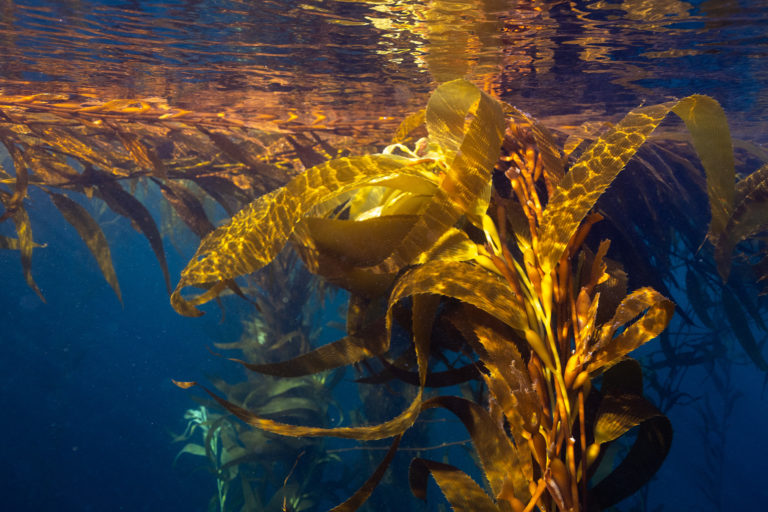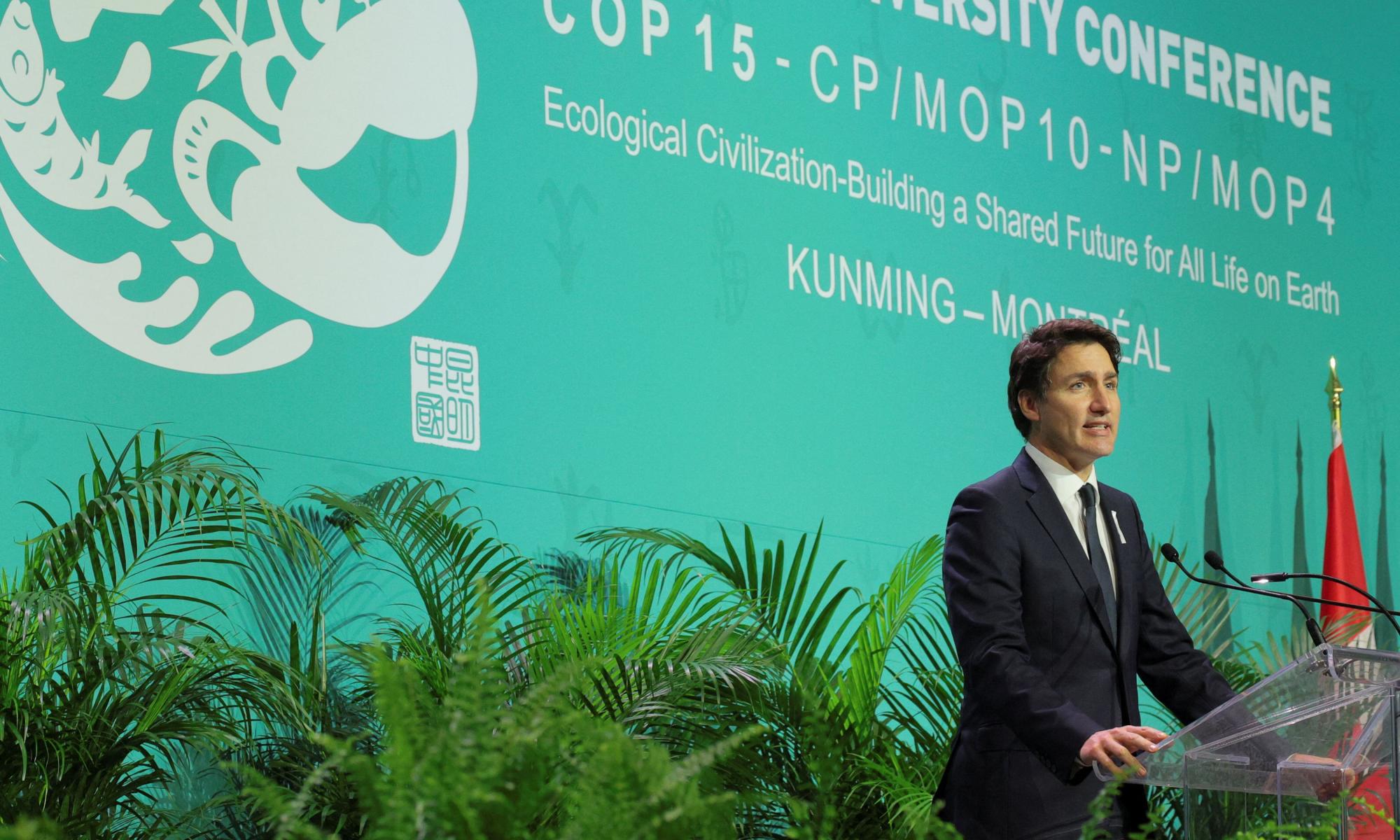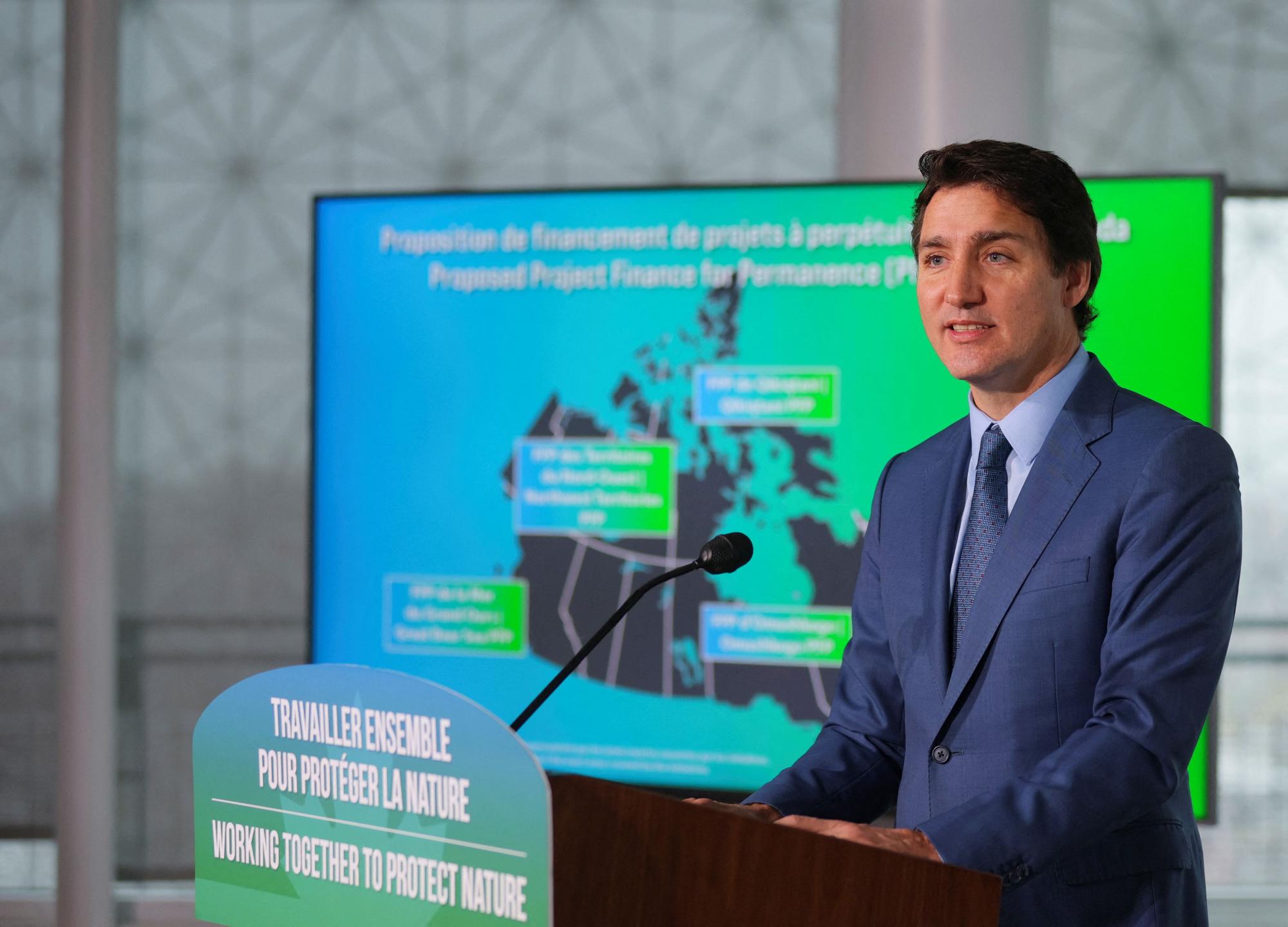In a field full of polytunnels containing row after row of tomatoes and cucumbers, laminated sheets covered in images that look like police mugshots are prominently displayed. Pictured are a list of “friends and foes”.
The “foes”, according to Riverford Organic Farmers, are aphids, spider mites and thrips. The “friends” are predatory and parasitic wasps, lacewings, ladybirds and hoverflies. There is no mention of herbicides and insecticides, which most farmers would consider friends. Crops have no signs of disease thanks to a system that has taken years to fine-tune, says the company’s founder, Guy Singh-Watson. “Attention to detail,” he says. “It’s good farming, really.”
This is a tiny section of Riverford’s Wash farm, which covers 525 hectares (1,300 acres). A third of the land is suitable for vegetable production, of which 60 hectares are used for growing vegetables in any one year. The land is managed as a mixed organic farm, with rotations between two years of growing vegetables to three years for the soil to rest, when the grass is cut for silage or grazed by a herd of dairy cows. The rest of the farm is taken up by species-rich meadows, woodland, scrub, agroforestry, orchards, streams and ponds.

“I wanted to go further than organic, and there’s a word for it – but most people ain’t got a clue,” says Singh-Watson. He is talking about regenerative agriculture, which few can pin down but essentially means regenerating nature on farms from the soil up, an idea that started as a fringe movement but is becoming more mainstream.
That is why boosting the strength and populations of “friends” is key. The team are experimenting with growing fennel next to tomatoes because hoverflies like it (adults pollinate while their larvae prey on aphids); a wildflower mix will encourage a healthier population of other predatory insects to keep aphid numbers low; and Singh-Watson is looking at planting black wheat, borage and nettles, which all repel certain insects, as other ways to keep pests away from the crops.

When he appeared on BBC Radio 4’s Desert Island Discs in 2018, Singh-Watson told Kirsty Young about wild parties at Riverford where almost everyone took magic mushrooms. Although those days seem to be a thing of the past, he has retained the spirit of trying everything, and there are little new projects happening all over the farm.
One of the latest experiments has been swapping plastic packaging on fruit and vegetables to home-compostable alternatives. If customers do not have compost at home, they can send back the containers in the delivery box, and they end up on a compost heap that looks like it has been crossed with a landfill site.
“I can smell this morning it’s going wrong,” says Singh-Watson. “This acrid smell tells me it’s going a bit anaerobic. We need more wooden boxes in there.” He gets in a tractor to turn it, and you can see the steam wafting out.

Eventually these scraps of rubbish will break down into fine compost that can be ploughed back into the land. It can reach 70C (158F) in the middle as a result of the heat generated by bacteria digesting, which means it kills all pathogens and weed seeds. “If you’re patient enough, you could cook a chicken in there,” he says. The company is saving 21 tonnes of plastic a year by doing this, he adds.
He has also rented out land to growers looking to develop a market for perennial vegetables (which he says he is “obsessed with”) and is experimenting with growing lentils.
Singh-Watson, who has been digging and selling greens from this land for 36 years, sold the company, which supplies thousands of veg boxes across the UK each week, to its employees four years ago, and they now own 74% of it. Last year it made a pre-tax profit of almost £12m (after a £1.5m loss the year before) and £1.8m went into funding climate and biodiversity efforts.
About 80% of the vegetables are UK-grown and 100% of the meat is British, but there is a limit to how “local” food should be, he says. Rather than growing out-of-season produce in Britain in artificially heated polytunnels (which Singh-Watson calls “completely insane”), it is greener to import vegetables. A tomato grown in the UK using artificial heat uses between two and 10 times as much carbon as one ripened naturally in Spain, researchers at Exeter University concluded recently. Vegetable boxes contain produce that has come from as far away as the Americas, Africa and Oceania.
"html":"Everyone says they want to eat local and seasonal, and everyone is a bloody hypocrite, including me","attribution":"Guy Singh-Watson"
“If we went back to seasonality, we would go bust,” says Singh-Watson. “I’ve no doubt that we would lose 70% of our customers over winter. We’re making compromises. Everyone says they want to eat local and seasonal, and everyone is a bloody hypocrite, including me.
“Some of our customers have been moaning about the imported stuff and I said, ‘Why don’t you get our UK-only box?’ It’s about 3% or 4% of sales, so 96% of people don’t want that.”
The company is also looking into the impact of livestock and how they should be incorporated into an organic growing system. This is where the knotty issue of meat and dairy consumption comes in.
In collaboration with Exeter University, Riverford has measured its annual carbon footprint for four years. This includes agricultural emissions from its three UK farms – Wash farm in Devon, Sacrewell farm in Peterborough, and Upper Norton farm in Hampshire. Riverford’s aim is to achieve net-zero carbon emissions by 2030, according to its 2020-21 sustainability report.
These farms grow 10% of the 20,000 tonnes of vegetables, herbs and salad delivered by the business, but none of them provide meat or dairy, which are provided by external suppliers.

Each year, Riverford sells 1,300 tonnes of dairy and 800 tonnes of meat, which means that 10% of produce by weight is meat and dairy. “We’re at the start of a journey looking at our meat carbon footprint,” says Zac Goodall, head of sustainability at Riverford.
“Making significant decisions to remove or reduce livestock from mixed organic farming systems before having this data is not good practice,” says Goodall, who believes there is a strong argument for having limited numbers of grass-fed livestock within a sustainable agriculture system because it improves soil fertility. “We’re definitely not in a state of avoidance when it comes to meat and dairy. We’re facing right into what we need to do, and starting to look at the hotspots for negative impacts and attacking them directly.”
There is rarely a one-size-fits-all answer to defining sustainable eating. Riverford policy is to eat meat and dairy less often, but to ensure it is good quality, with a lot of seasonal organic vegetables. The company agrees that it is necessary for people to eat fewer (or no) animal products and is starting to measure the environmental impact of its suppliers, including livestock farmers.
Meanwhile, a “silvopasture” project – growing trees with livestock grazing underneath – is being developed with 300 walnut and 200 hazelnut trees. It is Singh-Watson’s latest brainwave for producing local, sustainable produce, which could also be a protein replacement for meat. It’s unlikely to be his last.


